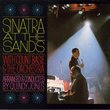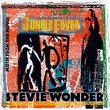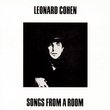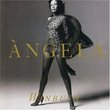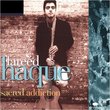| All Artists: Charles Lloyd Title: Canto Members Wishing: 2 Total Copies: 0 Label: ECM Records Release Date: 5/20/1997 Genres: Jazz, Pop Styles: Modern Postbebop, Bebop Number of Discs: 1 SwapaCD Credits: 1 UPCs: 731453734524, 781182163522, 0731453734524 |
Search - Charles Lloyd :: Canto
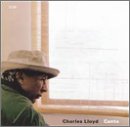 | Charles Lloyd Canto Genres: Jazz, Pop
|
Larger Image |
CD DetailsSimilarly Requested CDs
|
CD ReviewsThere is coltrane and than there is lloyd 10/30/1999 (5 out of 5 stars) " Charles Lloyd- Canto with Bobo Stenson (piano), Anders Jormin (bass) Billy Hart (drums) and Charles Lloyd (tenor sax, Tibetan oboe) ECM 1635 Charles Lloyd was very much responsible for me listening to ECM in a serious way again. When I first heard Notes From Big Sur, I didn't quite know what I was hearing, except that it had genius written all over it. Those long sheets of sound that he was creating, those musical silences, the interplay between the musicians. There was respect at work here as well as eastern influences and philosophies. Well little has changed in all this time and Lloyd now offers up his fifth recording for ECM. I may add that this is as good as anything he has done in the past on this label. Again the introspection, the soft style of sax playing, the sensation with this outfit that they and us as listeners are floating on air or a cloud of notes. This is the thing with Charles Lloyd's music, it gives one the feeling of peace and weightlessness. I have a lot of respect for Manfred Eicher and ECM. He single handedly has changed the way a lot of us have listened and for that he should be placed in the musical hall of fame alongside a lot of his artists. I think I have made peace with the fact that I will never come to terms with the avant garde outings on this label, the way out of left field Nordic jazz that Eicher has taken a chance on, folks like Jon Balke, Krakatau etc.You see it is not of my culture. I understand it and on an intellectual level I can accept it but I don't find it interesting in the least. Still there is enough on ECM to feed this soul and this is about Canto after all. I think of the music of the sixties when I hear Charles Lloyd. There were so many ideas happening at the time and with all the black American jazz around I think it would have been an interesting time to be around exploring music. Charles Lloyd himself has been around for a long time and in the past has worked with blues based musicians Howlin' Wolf, B.B King as well as Ornette Coleman, Eric Dolphy, Cannonball Adderley and Chico Hamilton to name a few. The bible of jazz says he discovered Keith Jarrett as well as Michael Petrucciani and at the end of the 60's after Haight Ashbury, peace and love, decided to drop out so to speak. One of the reasons he came back was Michael Petrucciani who he struck up a friendship with, and this coupled with what he calls the sympatico between his music and Nordic jazz players like Anders Jormin and Bobo Stenson and the audiences from this part of the world was enough to rekindle the flames. Canto is late night music. Nothing abrasive or confrontational here. Bobo Stenson absolutely oozes sensitivity on this recording and Anders Jormin on the double bass is a man in control of this larger than life sounding instrument. There are the references to eastern ideas, as usual, on this recording especially Tales Of Rumi, inspired by the writing of Sufi poet and philosopher Jalaluddin Rumi. Also Nachiketa's Lament, based on one of the stories in the Upanishads. I can't praise this highly enough and every time I hear it I want to pull out the other recordings and phone up Manfred and say thank you. Charles Lloyd himself says "We play for those miraculous moments when the music opens up and you know you are home." Pure magic, have no doubts about that. " Lloyd's Finest G B | Connecticut | 07/11/2004 (5 out of 5 stars) "Canto was Charles Lloyd's fifth album for ECM, and like the first four featured Lloyd in front of a piano-bass-drum rhythm section. (Canto features the same musicians as The Call and All My Relations: Bobo Stenson, Anders Jormin and Billy Hart.) Much, though not all, of the material on those early albums is quiet, slow-pace and introspective. Canto has that same inward-looking vibe, and the music often moves along at a measured pace, but it adds a focused intensity that wasn't always present on earlier recordings."Tales of Rumi" begins quietly and mysteriously, the rhythm section slowly building tension over several minutes to prepare for Charles's entrance. He comes in, solos briefly with a Middle Eastern motif, then stops the rhythm section for a majestic invocation on tenor. The band then resumes and plays the same material they did in the beginning at a much faster tempo. After a Stenson solo, Charles re-enters with some of the most ferocious playing he's offered in the past twenty years. It's an incredible jazz performance.The music mellows out after this intense workout. There are two beautiful ballad performances on "How Can I Tell You" and "Desolation Sound". The title track is a slow-paced piece that doesn't go anywhere in particular but at least makes the journey enjoyable with lyrical playing by both Lloyd and Stenson. "Nachiketa's Lament" is a dirge featuring Lloyd's mournful playing on Tibetan oboe. The album then regains momentum. "M" opens with an unaccompanied bass solo by Jormin before locking into a groove. Bobo Stenson solo turns up the heat before Lloyd comes in with some intense wailing. The album finally wraps up with an exhilarating, luminous rubato ballad a la "After the Rain" or "Ogunde". These last two performances evoke the classic Coltrane quartet in the best sense.All four musicians are on top of their game. Charles's playing is some of the fiercest and most focused of his career, Bobo Stenson is superb as both a soloist and an accompanist, and Billy Hart's powerful drumming is captured beautifully by the ECM engineers.Lloyd's next few albums after Canto have a different sound, adding John Abercrombie on guitar and placing Billy Higgins behind the drums. For whatever reason, those excellent albums get a lot more hype than this one. That's unfair, because Canto offers a sense of mystery and emotional depth that they don't always match; it's my favorite." Majesty -- Lloyd's Best Stephen Silberman | SF, CA USA | 02/26/2000 (5 out of 5 stars) "This is the best of the Charles Lloyd "comeback" albums, and some of the most astonishingly beautiful and powerful jazz quartet music ever made. It's the the Coltrane quartet that played "Spiritual" and "India" crossed with the Bill Evans Trio that played "Jade Visions." The first tune coalesces out of a cloud of inside-the-piano space, and unleashes a volcanic riff that builds and builds -- and the rest of the disc is subtle, moody, extremely mature music. This is what jazz is about."
|

 Track Listings (7) - Disc #1
Track Listings (7) - Disc #1


